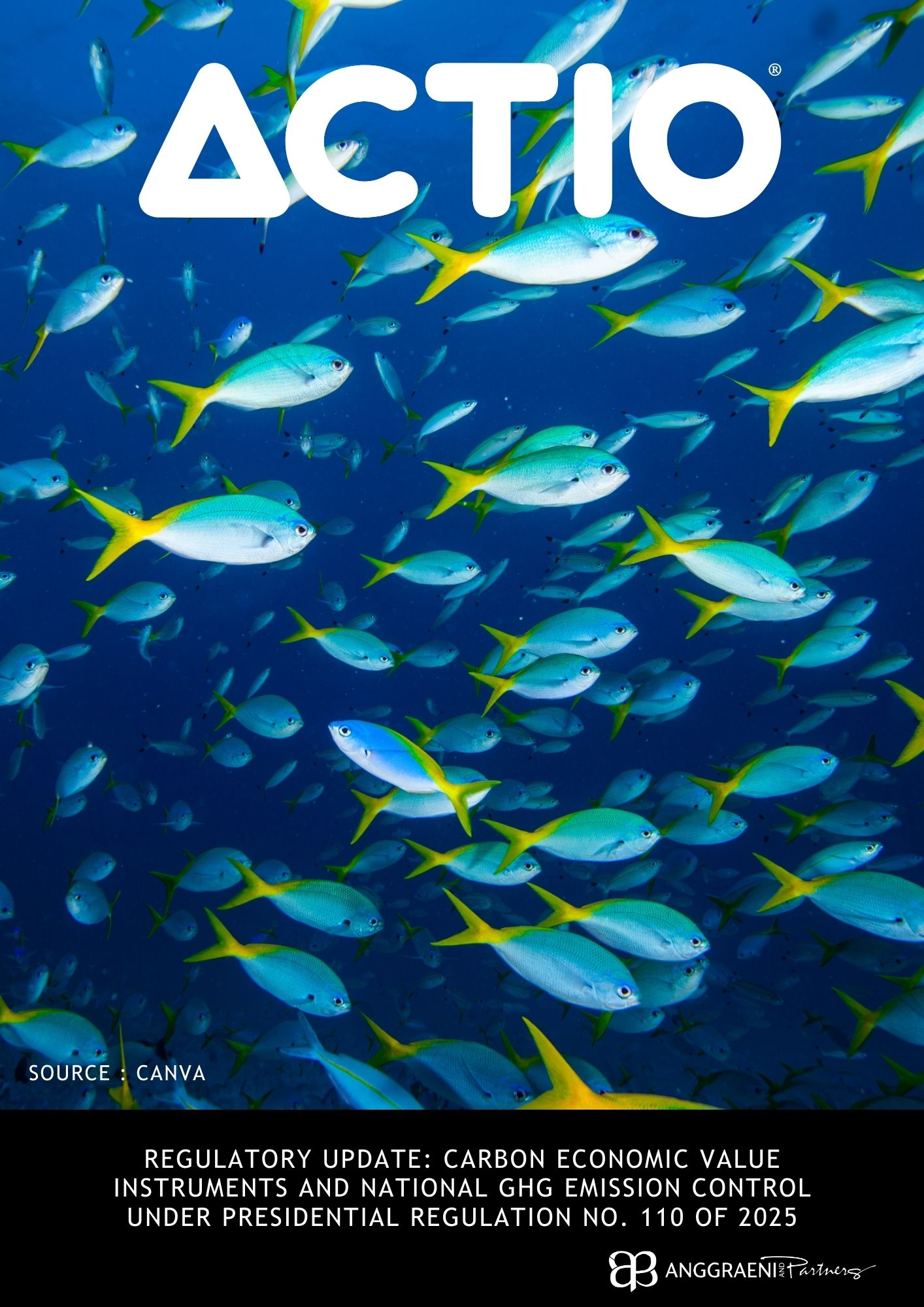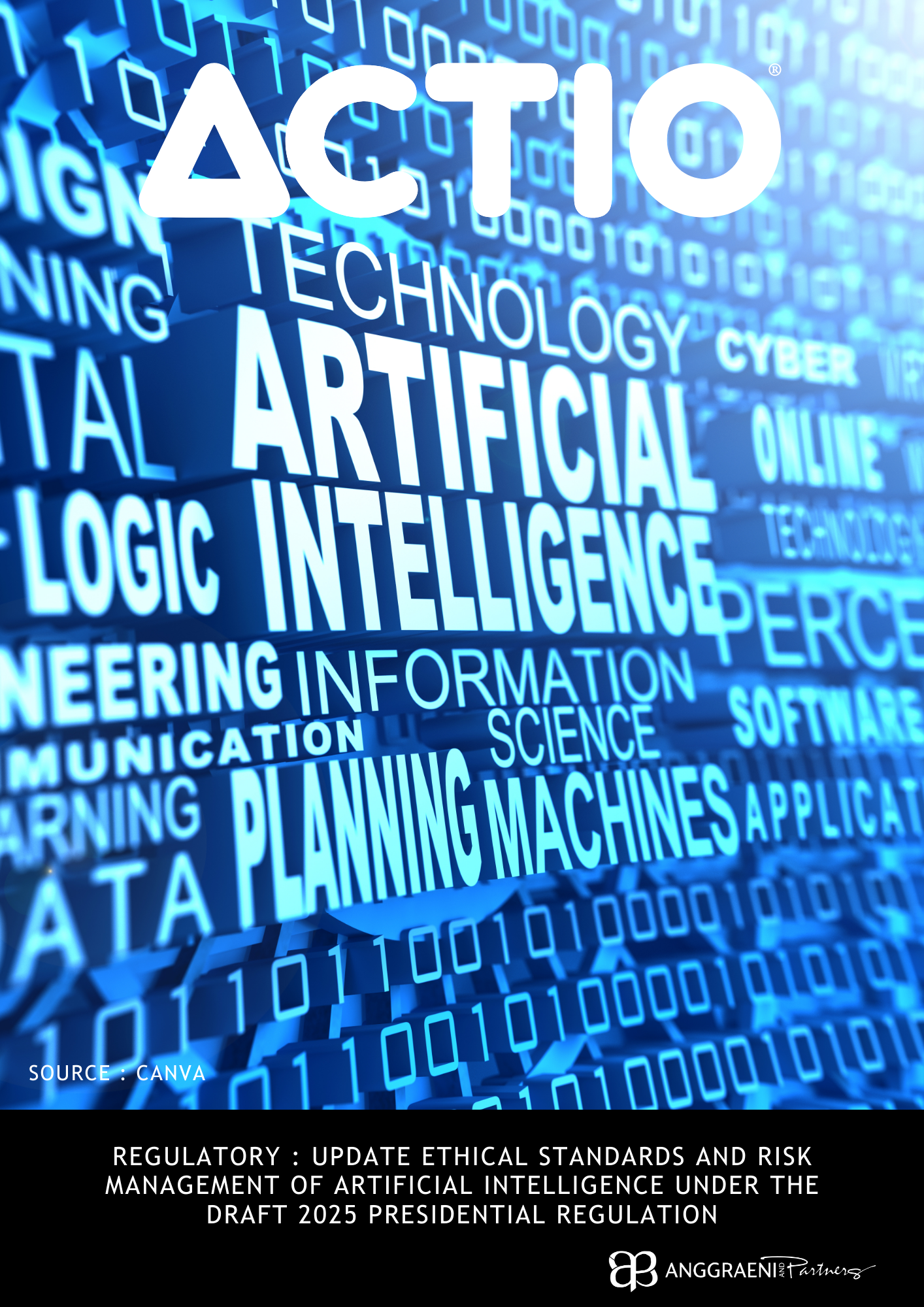- Home
- Capabilities
- ACTIO® Hub
- About Us
- Connect with Us
- AP Library
By Setyawati Fitrianggraeni and Cassey Jovenia
The enactment of Law Number 27 Year 2022 concerning Personal Data Protection (“PDP Law”) marks as Indonesia’s new era of personal data protection. In October 2024, the two-year transition period has ended. Now, all entities acting as a controller or processor must fully implement and carry out the law. However, the PDP Law itself is incomplete without its implementing regulation, and most importantly, the PDP Body as promised by Article 58 of the PDP Law that will carry out the enforcement and implementation of personal data protection in Indonesia.[1]
The PDP Body is to be established by and to be responsible to the President of Republic of Indonesia.[2] Meaning, the PDP Body is not under any ministry, but wholly independent directly under the President. The PDP Body in essence has four functions according to Article 59 of the PDP Law, as follows:[3]
As of now, the PDP Body is not established yet. The inexistence of a PDP Body hinders the full power which the PDP Law actually has, as the administrative violations set therein are not yet applicable to controllers and processors. Not only that, data subjects’ rights to protection under the law are not fully enforced.
In carrying out its functions, the PDP Body has several authorities as set forth in Article 60 of the PDP Law.
|
Authority of PDP Body |
|
| Formulate personal data protection policies | Supervise personal data protection compliance |
| Impose administrative sanctions to controller and/or processor | Assist law enforcement in handling personal data crime allegations |
| Cooperate with PDP body of other countries in settling personal data protection violation allegations | Assess fulfilment of personal data transfer requirements |
| Give orders in order to follow up the supervision results to controller and/or processor | Create publication of personal data protection supervision results |
| Receive complaints and/or reports on personal data protection violation allegations | Conduct inspections and searches on complaints, reports, and/or the supervision results regarding allegations of personal data protection violations |
| Summon and present every person and/or public body in relation to personal data protection violation allegations | Request statement, data, information, and documents from every person and/or public body in relation to personal data protection violation allegations |
| Summon and present experts that are needed in an inspection and search in relation to personal data protection violation allegations | Conduct an inspection and search on electronic systems, facilities, rooms, and/or places used by controllers and/or processors, including obtaining access to data and/or appoint a third party for the same |
| Request legal assistance from the attorney general in settling personal data protection dispute | |
In the current state of no PDP Body, surely it impacts the implementation of personal data protection by businesses and institutions aside from the obvious of no supervision and enforcement of the PDP Law. Without the PDP Body, compliance with the current applicable law in Indonesia is tricky as there is no entity with authority to provide interpretation and further regulation. Moreover, the inexistence of PDP Body in Indonesia may be an obstacle for cross border data transfer as one of the determinants is adequacy of level of protection and when dispute arises, there will be no party to cooperate with other countries’ personal data protection authority. Data protection failure incident handling may also be affected as there is no authority that can receive the report and investigate it.[4] Therefore, the establishment of PDP Body is important as ever and needed as soon as possible.
The establishment of the PDP Body has not been broadly discussed by the general public. However, the most recent update known to the public is that the establishment process is currently already in the hands of Ministry of State Apparatus Utilization and Bureaucratic Reform. The Ministry is currently finalizing the draft presidential regulation concerning the PDP Body establishment.[5] It is still unknown when exactly the establishment process will be completed. The PDP Law is incomplete without the PDP Body that serves several functions and authorities, mainly supervision and enforcement. This independent body is highly needed in order to ensure compliance with the law and to enforce the law itself. Without the PDP Law fully enforceable and functioning, this may affect corporations in carrying out their business activities, not only locally within the country but also internationally.
In conclusion, despite the PDP Law taking full effect in October 2024, its enforcement remains limited due to the absence of the PDP Body, an independent authority tasked with supervision, enforcement, and dispute resolution. Without it, key provisions such as administrative sanctions and oversight cannot be implemented, leaving data subjects unprotected and businesses without clear guidance. This also hinders cross border data transfers and legal compliance. Although the draft presidential regulation is being finalized by the Ministry of State Apparatus Utilization and Bureaucratic Reform, the timeline for establishment remains unclear. Until the PDP Body is formed, the PDP Law remains incomplete and largely unenforceable.


